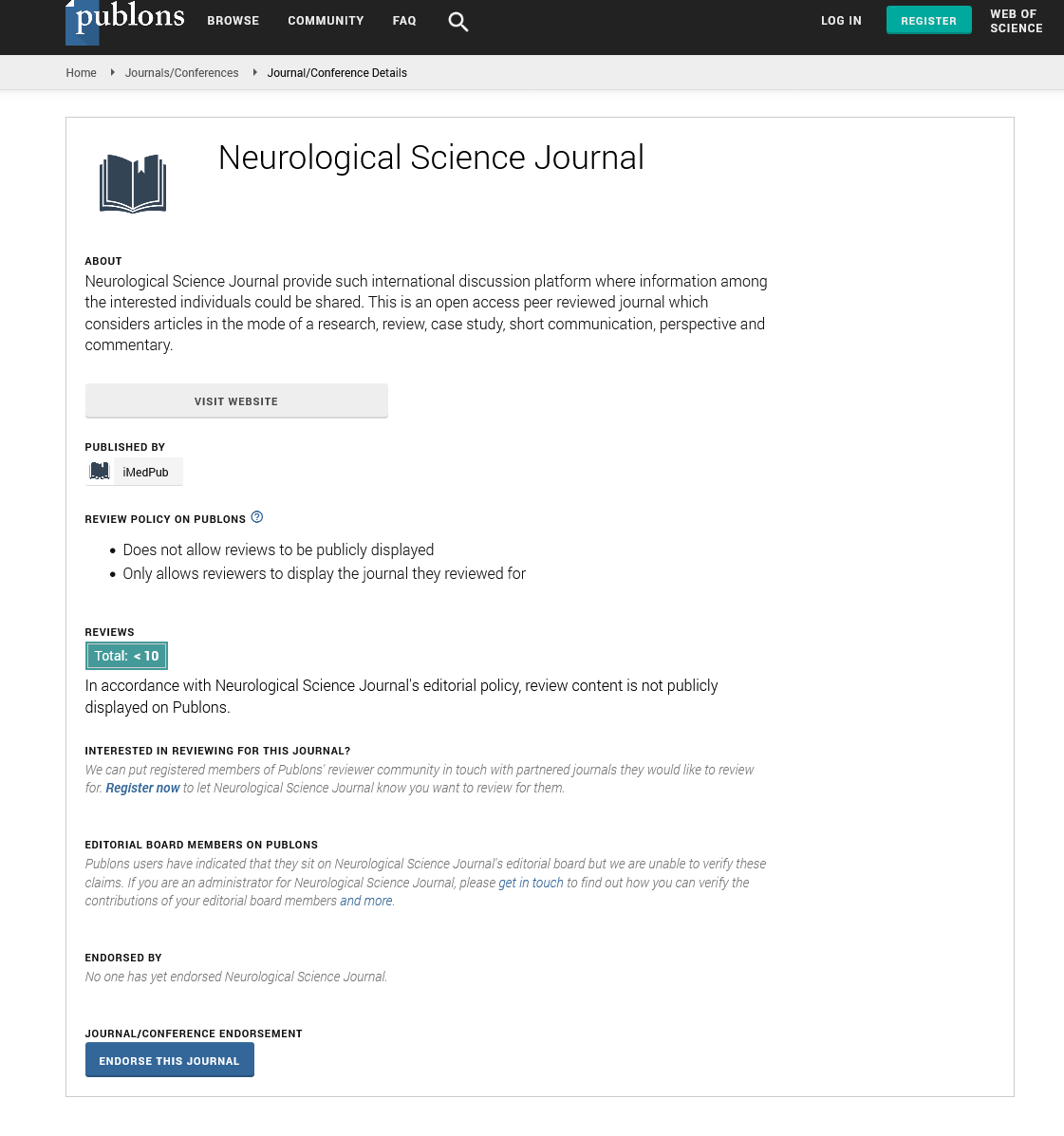Abstract
Challenges of Early Stroke Admission Management in Tropical Setting
Introduction: Stroke remains the first leading cause of hospitalizations and adult disabilities, and second cause of death in Africa. The hyperacute management of stroke in tropical setting is still an enigma despite established guidelines.
Objective: To determine the gaps in the management of stroke, within a context of limited healthcare resources regarding the international stroke guidelines.
Methods: We have recorded all patients admitted to the neurology department of University Hospital via the Intensive Care Unit for stroke. The evaluation criteria were concerned the case notification, admission time, epidemiological data, clinical signs, CT scan performing and outcome.
Results: A total of 183 patients out of 340, were hospitalized for stroke, including 131 cases (71.58%) of cerebral ischemia and 52 cases (28.42%) of haemorrhage. Accessibility means to the CT scan was 53.82%. The average age was 63.96 ± 12.72 with a male predominance (102 men and 81 women). The admission average time was 3.7 days. The time of first clinical examination was noted in 154 cases (84.15%). The mean time to receive in hospital first cares was 25 minutes. The neurological evaluation by the NIHSS was done in 71 cases and Glasgow score scale in 106 cases. The brain CT scan was performed in all patients with 61 cases within 24 hours. The average time to perform brain imaging was 3.5 days. The hospital length of stay was 19.5 days. The hospital mortality rate was 52%.
Conclusion: The study let appear the wide gaps between our in local context practices and the international stroke guidelines.
Author(s): Komi Assogba1*, Cisse FA2, Lamine S2, Sidibe B2, Foksouna S3, Abdullah Blakime3, Mohamadou Fall3 and Yacouba NM4
Abstract | Full-Text | PDF
Share This Article
Google Scholar citation report
Citations : 11
Neurological Science Journal received 11 citations as per Google Scholar report
Neurological Science Journal peer review process verified at publons
Abstracted/Indexed in
- Google Scholar
- Publons
Open Access Journals
- Aquaculture & Veterinary Science
- Chemistry & Chemical Sciences
- Clinical Sciences
- Engineering
- General Science
- Genetics & Molecular Biology
- Health Care & Nursing
- Immunology & Microbiology
- Materials Science
- Mathematics & Physics
- Medical Sciences
- Neurology & Psychiatry
- Oncology & Cancer Science
- Pharmaceutical Sciences
